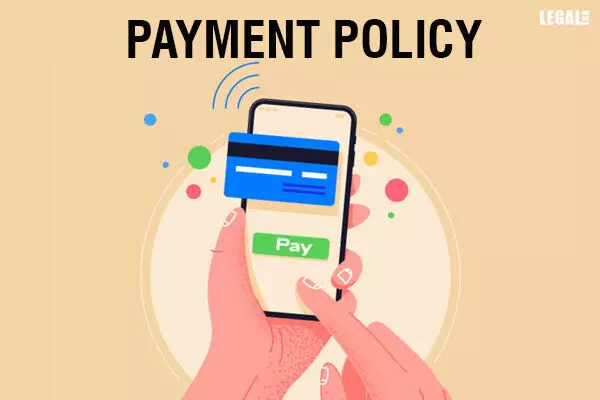- Home
- News
- Articles+
- Aerospace
- Artificial Intelligence
- Agriculture
- Alternate Dispute Resolution
- Arbitration & Mediation
- Banking and Finance
- Bankruptcy
- Book Review
- Bribery & Corruption
- Commercial Litigation
- Competition Law
- Conference Reports
- Consumer Products
- Contract
- Corporate Governance
- Corporate Law
- Covid-19
- Cryptocurrency
- Cybersecurity
- Data Protection
- Defence
- Digital Economy
- E-commerce
- Employment Law
- Energy and Natural Resources
- Entertainment and Sports Law
- Environmental Law
- Environmental, Social, and Governance
- Foreign Direct Investment
- Food and Beverage
- Gaming
- Health Care
- IBC Diaries
- In Focus
- Inclusion & Diversity
- Insurance Law
- Intellectual Property
- International Law
- IP & Tech Era
- Know the Law
- Labour Laws
- Law & Policy and Regulation
- Litigation
- Litigation Funding
- Manufacturing
- Mergers & Acquisitions
- NFTs
- Privacy
- Private Equity
- Project Finance
- Real Estate
- Risk and Compliance
- Student Corner
- Take On Board
- Tax
- Technology Media and Telecom
- Tributes
- Viewpoint
- Zoom In
- Law Firms
- In-House
- Rankings
- E-Magazine
- Legal Era TV
- Events
- Middle East
- Africa
- News
- Articles
- Aerospace
- Artificial Intelligence
- Agriculture
- Alternate Dispute Resolution
- Arbitration & Mediation
- Banking and Finance
- Bankruptcy
- Book Review
- Bribery & Corruption
- Commercial Litigation
- Competition Law
- Conference Reports
- Consumer Products
- Contract
- Corporate Governance
- Corporate Law
- Covid-19
- Cryptocurrency
- Cybersecurity
- Data Protection
- Defence
- Digital Economy
- E-commerce
- Employment Law
- Energy and Natural Resources
- Entertainment and Sports Law
- Environmental Law
- Environmental, Social, and Governance
- Foreign Direct Investment
- Food and Beverage
- Gaming
- Health Care
- IBC Diaries
- In Focus
- Inclusion & Diversity
- Insurance Law
- Intellectual Property
- International Law
- IP & Tech Era
- Know the Law
- Labour Laws
- Law & Policy and Regulation
- Litigation
- Litigation Funding
- Manufacturing
- Mergers & Acquisitions
- NFTs
- Privacy
- Private Equity
- Project Finance
- Real Estate
- Risk and Compliance
- Student Corner
- Take On Board
- Tax
- Technology Media and Telecom
- Tributes
- Viewpoint
- Zoom In
- Law Firms
- In-House
- Rankings
- E-Magazine
- Legal Era TV
- Events
- Middle East
- Africa
Madras High Court Restrains Google from Delisting Matrimony.com from Play Store over Dispute in New Payment Policy

Madras High Court Restrains Google from Delisting Matrimony.com from Play Store over Dispute in New Payment Policy
The Madras High Court has imposed temporary injunction, restraining the tech-giant Google from removing or delisting the mobile app of online matchmaking company Matrimony.com and its affiliate from the Google Play Store owing to the dispute over the tech company’s new payment policy.
The single judge Justice S. Sounthar granted an interim injunction in favor of Matrimony.com and directed the respondents/defendants- Google not to remove the app from the Play store till 1 June, the next date of hearing.
The applicant- Matrimony.com, which is the owner of the brand Bharat Matrimony, had approached the High Court, with its plea stating that Google was forcing app developers to agree to its payment policy of charging a service fee at the rate of 11 percent and 26 percent even with respect to the payments made by customers through its new user’s choice billing system.
Earlier, Google required all app developers to use its Google Play Billing System (GPBS) for all transactions, including paid app downloads and in-app purchases. App developers were charged a commission between 15 to 30 percent for the services that Google offered.
Google’s new billing system however, allows users to opt for ‘an alternative billing’ option besides GPBS. It allows app developers to use third party billing systems, but imposes a service fee of 11 to 26 percent.
It is this fee that Matrimony and several other app developers have been opposing.
In its plea, Matrimony.com submitted that it had entered into a Developer Distribution Agreement with Google Asia Pacific for listing its app in the Google Play Store.
The counsel for Matrimony.com apprised the High Court that when customers selected the payment option by using the alternative billing system, the levy of service fee by Google at the rate of 11 percent or 26 per cent, depending on the size of revenue generated by app developers in a year. The Counsel argued that this policy was, ‘on the face of it, unconscionable.’
The Court was further informed that the Competition Commission of India (CCI) by its order dated 25 October, 2022, had directed Google not to restrict the app developers from using any third-party billing/payment processing services.
Despite issuance of this order, Google allegedly attempted to circumvent the order, by permitting the app developers to use ‘Alternative Billing System/User Choice Billing’ alongside and in addition to the GPBS.
The Court noted that if Matrimony’s apps were delisted from Google Play store for their failure to toe the line on Google's new payment policy, Matrimony.com would suffer irreparable loss and hardship.
“Therefore, the balance of convenience is also in favour of the applicant for grant of an order of injunction against delisting, till the respondents are heard,” the High Court said.
Accordingly, Court passed an order of interim injunction restraining the respondents/defendants from removing/delisting the mobile applications (mobile apps) owned and operated by the applicant in Google Play Store in India till 1 June, 2023.
Senior Advocates Sriram Panchu and Srinath Sridevan, along with Advocates R Venkat Raman, Anirudh B Menon, SK Harinarayanan and Sachin Menon of Tatva Legal appeared for Matrimony.com.



